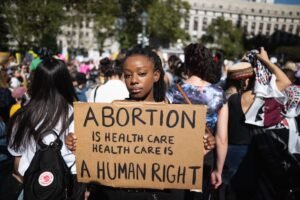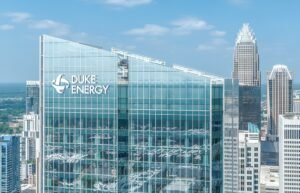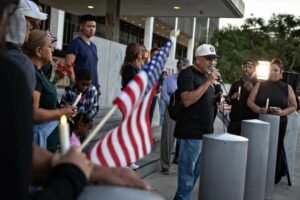On January 6, 2021, a day now etched into the collective memory of Americans, the U.S. Capitol in Washington, D.C., was stormed in an unprecedented act of insurrection. This date—January 6—has since become a symbol of division, trauma, and the fragility of democratic institutions. While much of the focus has been on the national implications, the impact of January 6 reached far beyond Washington, extending to cities like Durham, North Carolina, where the psychological, social, and political aftershocks were deeply felt.
What Happened on January 6?
On January 6, a violent mob, fueled by misinformation and a desire to overturn the 2020 presidential election results, breached the U.S. Capitol. Lawmakers were forced to flee for safety as rioters vandalized the halls of Congress in an attempt to disrupt the certification of Joe Biden’s victory. The chaos resulted in multiple deaths, injuries to law enforcement officers, and widespread condemnation from across the political spectrum. The events of January 6 became a glaring reminder of how misinformation and political polarization can lead to devastating consequences.
Durham’s Connection to January 6
While Durham, NC, is hundreds of miles away from the Capitol, the reverberations of January 6 were felt acutely within the community. Many residents of Durham reported feelings of shock, fear, and anger as they watched the events unfold on live television. For some, the day brought back memories of historical struggles for democracy and civil rights—a cause that Durham has long championed. The city’s history as a hub for progressive activism and its diverse, engaged population made January 6 not just a national tragedy but a local one as well.
The Psychological Toll on Durham Residents
According to mental health professionals in Durham, the events of January 6 triggered widespread anxiety and distress among residents. Counselors like Dr. Karen Mitchell, a licensed therapist in downtown Durham, reported a significant uptick in calls from clients seeking support in the weeks following the Capitol attack.
“People felt unmoored,” Dr. Mitchell explained. “January 6 wasn’t just about what happened in Washington—it was about the fear that our democratic institutions could collapse. That fear permeated communities like Durham.”
Local resident James Robinson, 43, shared that he suffered a nervous breakdown after January 6, overwhelmed by the sense that the country he loved was unraveling. “I couldn’t sleep for days after watching the Capitol being attacked,” Robinson said. “It felt like everything we’ve fought for as a country was hanging by a thread.”
Similarly, educators in Durham Public Schools reported students asking questions about the events of January 6, struggling to make sense of the violence and chaos they had seen. Teachers, many of whom were grappling with their own emotions, worked to provide a space for discussion and healing.
Political and Social Impacts on Durham
The events of January 6 also deepened political divisions in Durham. While the city is predominantly progressive, the insurrection forced conversations about the role of misinformation and political extremism in American society. Activists in Durham organized virtual forums and town halls to address the implications of January 6 and to promote civic education.
Local organizations like the Durham Committee on the Affairs of Black People and Democracy NC used January 6 as a rallying cry to advocate for stronger protections for voting rights and against gerrymandering. The day also reignited discussions about racial justice, as many in the community pointed out the stark contrast between the treatment of the predominantly white rioters on January 6 and the Black Lives Matter protesters in 2020.
The Mental Health Crisis in Durham Post-January 6
The psychological toll of January 6 wasn’t limited to feelings of fear and anger. Durham’s mental health clinics reported record numbers of people seeking therapy for anxiety and depression in the weeks and months following the insurrection.
Emily Carter, 29, a nurse at a local hospital, said she experienced a panic attack on January 6 after hearing colleagues dismiss the attack as “just a protest.” “I couldn’t believe what I was hearing,” Carter said. “It felt like the people around me didn’t understand the gravity of what was happening.”
Community leaders like Pastor Michael Harris of Durham’s Mount Zion Baptist Church noted an increase in parishioners seeking spiritual guidance in the aftermath of January 6. “People were lost,” Pastor Harris said. “They were looking for hope, for reassurance that everything would be okay.”
Moving Forward: Durham’s Response to January 6
Despite the trauma and division caused by January 6, Durham has demonstrated resilience. Local leaders have emphasized the importance of dialogue, education, and community-building to heal the wounds caused by the events of that day. In the years since January 6, Durham residents have organized voter registration drives, workshops on media literacy, and public discussions about the state of democracy in America.
While January 6 remains a painful memory for many, it has also served as a catalyst for change and reflection. Durham, a city known for its progressive spirit and commitment to justice, continues to confront the challenges posed by January 6 with determination and hope.
The events of January 6 were a national tragedy, but their impact was felt deeply in communities like Durham. From mental health crises to renewed activism, the day has left an indelible mark on the city and its people. As we reflect on January 6, let us remember the importance of vigilance, empathy, and the ongoing fight to protect the democratic ideals that bind us together.












